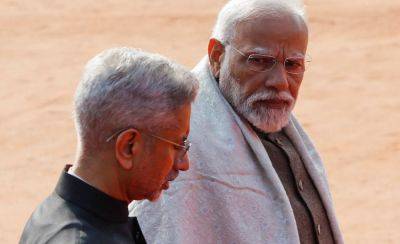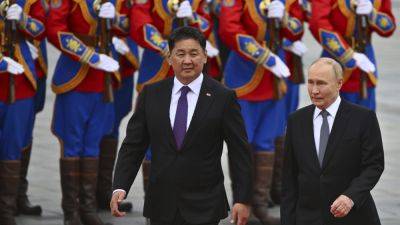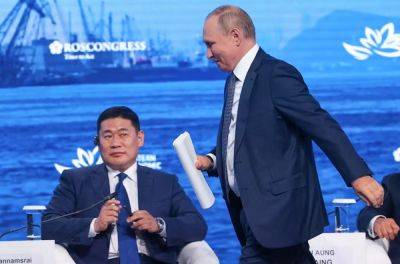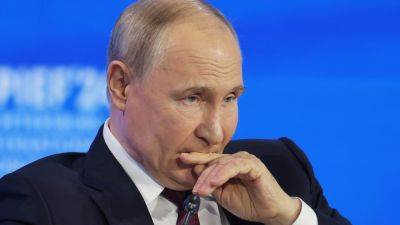Mongolia was meant to arrest Russia's President Putin last night. It didn't, and now it's in trouble
There's nothing remarkable about Russian President Vladimir Putin's visit to Mongolia on Tuesday — he's due to meet the country's leader, hold talks on developing bilateral ties and attend a gala reception.
What is unusual is that Mongolia, as a member of the International Criminal Court, should have arrested the Russian president as soon as he landed on Mongolian soil Monday evening.
Putin is the subject of an international arrest warrant issued by the ICC in March 2023. The court alleged that he is responsible for war crimes, with a particular focus on the unlawful deportation of children from Ukraine to Russia.
At the time, the Kremlin described the ICC's actions as "outrageous and unacceptable" and said they had no effect on Russia, which is not a member of the ICC.
Mongolia has now found itself in hot water as Putin visits the country — his first visit to an ICC member state since the arrest warrant was issued — with apparent impunity.
Under the Rome Statute, the founding treaty of the ICC that came into effect in 2002, ICC member states are obliged to detain and surrender to the court any persons who are subject to an ICC arrest warrant, if they set foot on their soil.
The court has no way to enforce the rule, however, and Mongolia defied it by welcoming Putin with a guard of honor as he met President Ukhnaagiin Khurelsukh in the capital, Ulaanbaatar, on Tuesday.
Mongolia's risky move has caused consternation at the ICC, which is based in the Netherlands, and in Ukraine, which was invaded by Russia in February 2022.
A spokesperson for the ICC, Fadi el-Abdallah, told the BBC last Friday that Mongolia had an "obligation" to comply with the arrest warrant and said "in case of non-cooperation, ICC judges may make a finding to







